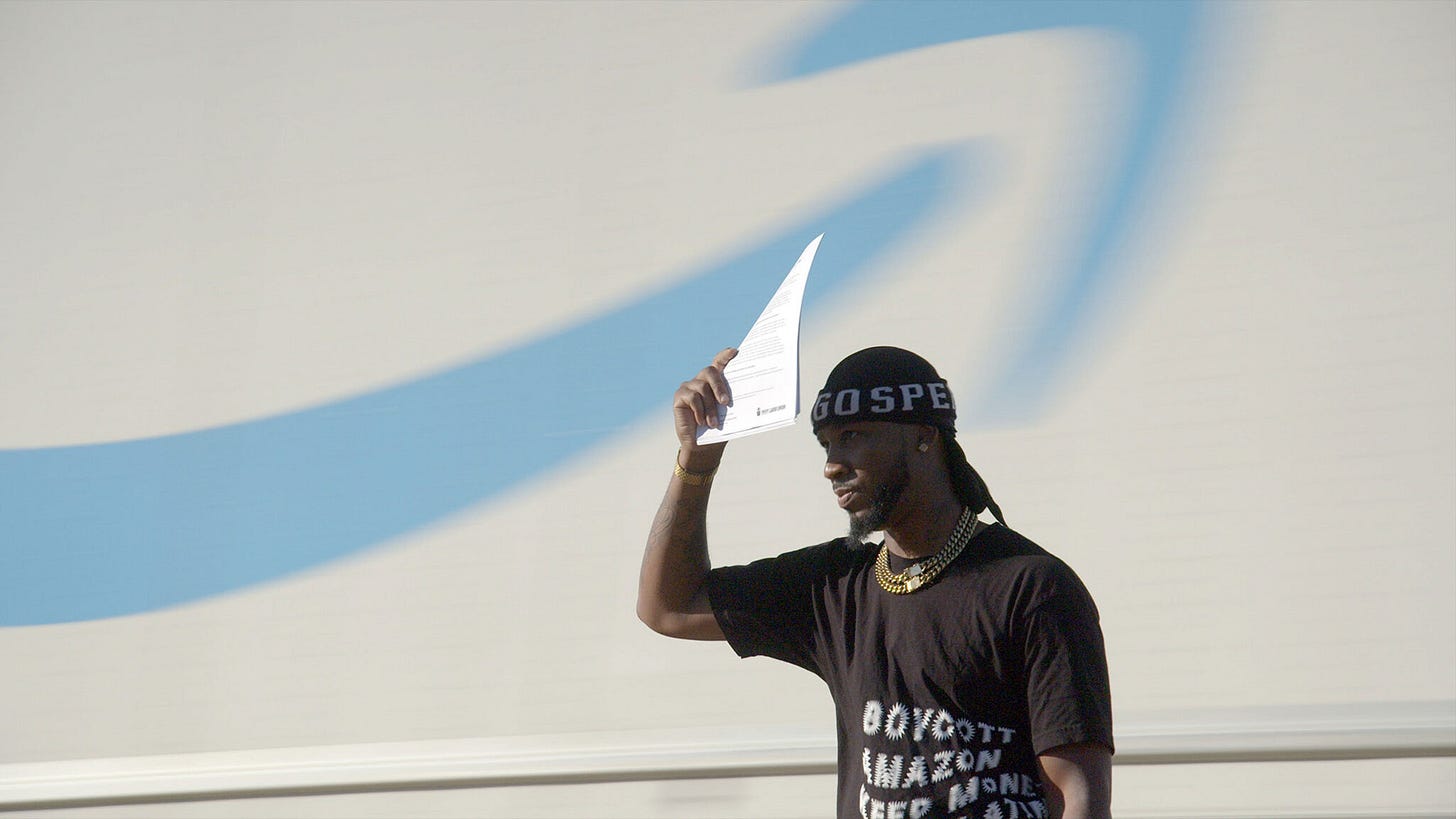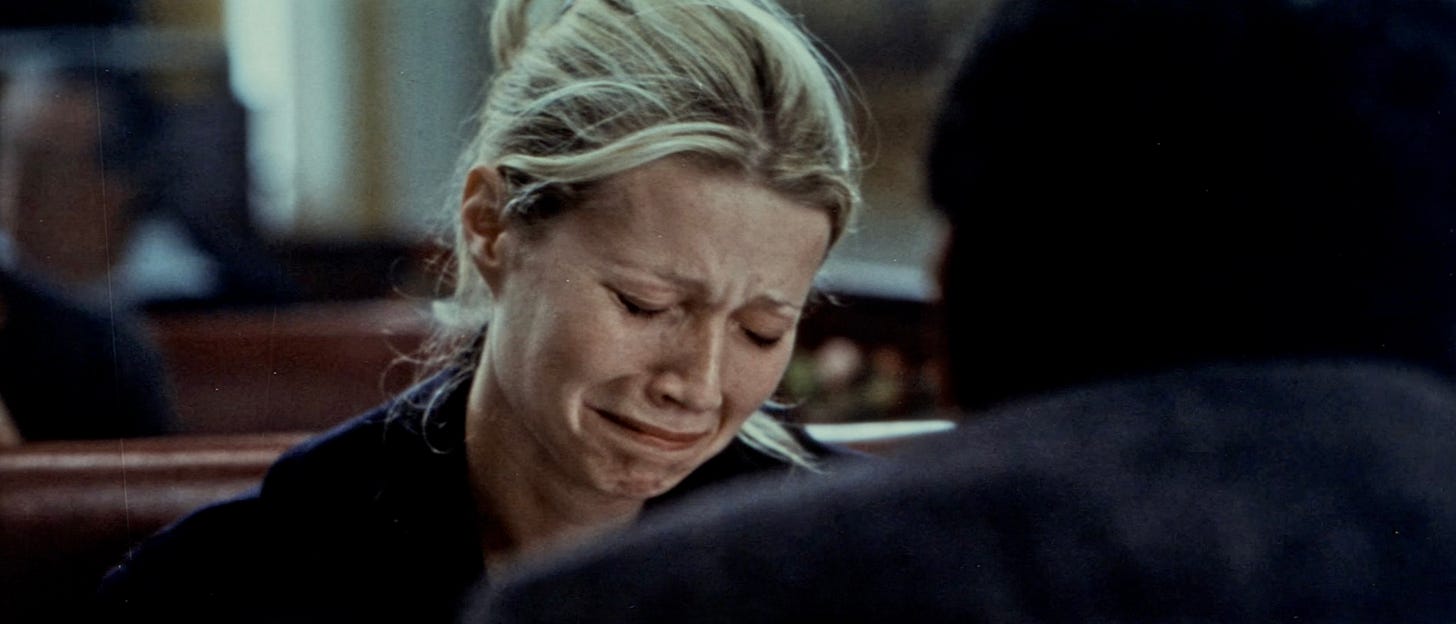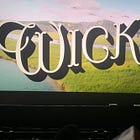Reading, Watching, Listening 11/29/2024
A few words about thanks
It’s Thanksgiving weekend south of the border. A bit late in the month, I’d say. The air here in Toronto is finally starting to exhibit that wintery bite, though the fact that we’re only now, at the end of November, starting to hit below-zero temperatures is alarming. I could go with some turkey fresh out of the oven. Here in Canada, Thanksgiving isn’t a huge deal. It happens in October, and people do get together, and turkey is usually involved, but it doesn’t compare to the bombast of an American Thanksgiving. I’ve only ever participated in one of those, visiting extended family who lived at the time in Philadelphia. The drive down, with my mom, was fun, and the festivities were exciting. And the food.
I love that Thanksgiving is a holiday built entirely around food. Literally. A harvest festival. It’s also about giving thanks. “Is there anything to be thankful for this year?” I was thinking the other day, as people on my social media feed began posting in anticipation of the holiday (check out Jamelle Bouie’s thread of Thanksgiving dinner prep if you’d like to start drooling), about the value of thanks, or thankfulness. Not questioning whether it has any value, but the nature of that value, what it actually offers us. It’s reciprocation, I’d say, the acknowledgement of an offering and the forming of a bond that exists outside of transactionalism. We say “thank you” not because it fulfills any terms of exchange, but because it bestows dignity on a shared humanity. We are thankful to people and to nature—and to God, if that’s what floats your boat—because we recognize the meaninglessness of an existence isolated from the world outside us.
But today is not Thanksgiving. It’s Black Friday. When thanks gives way to consumerist impulse, the very perversion of community and the erasure of human dignity. “Thanks” is subsumed into something for which thanks has no real value other than keeping up appearances. Etiquette for the sake of easing the time it takes to finalize a credit card transactions at the mall. Better still if you can order online from Amazon or some other etailer and avoid the need for etiquette with others entirely.
To mark Black Friday, filmmakers Brett Story and Stephen Maing have made their documentary Union, about the fight to establish a union a Staten Island Amazon warehouse, available to watch free for the long weekend. Adam Nayman wrote well about the film for the Toronto Star last weekend, but suffice it to say, the film is excellent, sharing a vision of labour and community in action. Union is available to watch on Gathr.com, where you can pay to rent it, or claim a free Pay It Forward rental. Watch it free if it suits you, but if you can afford it, consider the rental, or consider donating to the Amazon Workers Fund. Give thanks.
Today, over at Luke O’Neil’s Welcome to Hell World newsletter, I wrote about David Fincher’s 1995 masterwork Se7en, positing it as the film for this dark moment.
The piece is about the film, but it’s also about fears of bringing children into a fallen world, and what it means to persevere for a better world amid the seeming absence of evidence that a better world is possible.
Earlier this month The New York Times published a much mocked story under the headline, “The Unspoken Grief of Never Becoming a Grandparent.” I’m not sure the derision was entirely warranted. After all it’s a real perspective, and one I’m sure my own mother could relate to before my sister finally blessed her with a granddaughter a few months ago. Criticism of the piece took issue with its point-of-view, which centers the non-grandparents rather than the situation for their kids who are not having kids of their own. Small mention is made of reasons—go figure, it’s the economy, climate change and “the state of the world”—but that’s where the real story is. It’s the story of a generation, and maybe more than one, living in a world of increasing alienation, in which all the conveniences of modern life are barely a balm. It feels like everything is falling apart, that at best all we have to look forward to—politically, environmentally, what have you—is mitigation. There is no future, and how can anyone bring children into a world with no future?
Check out the full piece over at Hell World. This one is for Luke’s paid subscribers, and I happily endorse signing up. You can read some more of my own work there, along incredible reporting by Luke and others about the times we’re living in. And in the spirit of the season, I want to thank Luke for being friendly and supportive over the years, and giving me good, paid work in a truly hellish media environment.
Meanwhile, here on my own blog, I wrote about movie theatre etiquette, and a new entry in the Five-Star Three-Star Cinema Club, about Christopher Nolan’s 2002 film Insomnia, for paid subscribers.
Reading, Watching, Listening
Finally, I’ll send you out with a few great things I’ve encountered this week.
“The Invisible Man”, by Patrick Fealey, is a first-hand, memoiristic account of homelessness by a former journalist for The Boston Globe and other outlets. Fealey writes beautifully about his harrowing experience living out of his car for the last year, after two decades of living on the edge due to difficulties with bipolar disorder, depression and other issues.
We sleep in the Walmart parking lot for two months. During this time, police intervene half a dozen times, always in the middle of the night, when I’m asleep.
They bang on the driver’s-side window, awakening us, and shine bright lights in my face, just to ask, “Are you okay?”
I was okay before you woke me up.
It’s a story about the material world, and about dignity. It’s a long magazine story, published by Esquire—who I hope paid well for it—and every word is worth reading and sitting with.
9-1-1, the Fox show about first responders, starring Angela Bassett, is my new comfort TV watch. I knew about the show, of course, but somehow I’d slotted it in with the likes of NCIS and Dick Wolf’s Chicago shows. Turns out it’s actually the most insane show on television. Every episode is filled with the wildest incidents (rebar through a character’s brain, anyone?), all of which seem dreamed up by a writers room asking, “What is the craziest possible call a 911 operator could get.” The series opens with a premie baby rescued from a pipe behind a wall after being flushed down a toilet. And that’s just the first five minutes. You’re welcome.
“The mind-bending new science of measuring time”, by Oliver Roeder, is a new Financial Times longread about, well, the science of measuring time. It goes extremely deep into the state of official timekeeping, which is about to see a major transformation thanks to new kinds of atomic clocks, including what will be the establishment of a new definition of the second. It’s a fascinating subject whose technical details largely fly over my head, but whose philosophical implications about our relationship with time, space and matter are as exciting to contemplate as they are dizzying.






